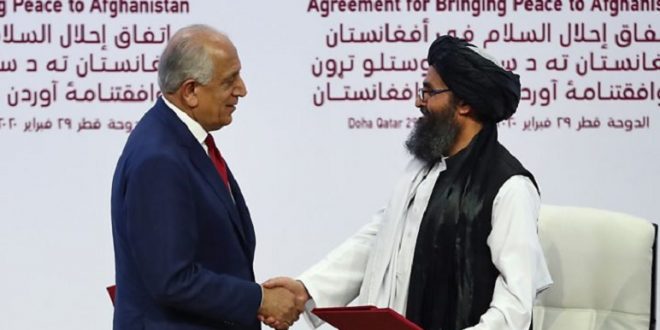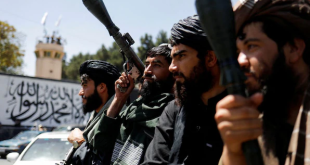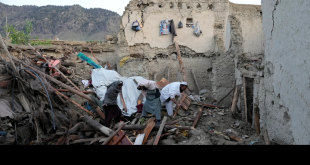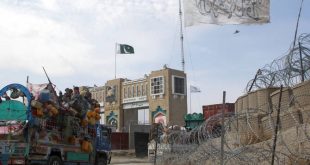The peace deal signed at the end of last month between the US and the Taliban provided a glimmer of hope that the long and brutal war in Afghanistan is coming to an end at last, but developments since then have proved that it might be another false dawn. In addition to the political turmoil stemming from two leaders claiming to be president, who carried out their separate oath-taking ceremonies last week, the next biggest stumbling block and an impediment to peace at this time is balking at the commitments made in the peace pact by the warring parties. A prisoner swap of 5,000 Taliban inmates in exchange for 1,000 Afghan security personnel is a vital clause of the US-Taliban peace pact signed in Doha on February 29. Therefore, the newly sworn-in President Ashraf Ghani, who had previously refused to release the Taliban prisoners, recently issued a decree to release 1,500 Taliban inmates as a gesture of goodwill. In compliance with his decree, the remaining 3500 prisoners would be released after a tangible reduction in violence by the Taliban and all released prisoners will have to give “a written guarantee to not return to the battlefield.” Nevertheless, the Taliban, who are seemingly patronizing the Afghan government after having achieved an international recognition now, strongly disagree with the conditional release of the 5,000 prisoners. Also, the Taliban representatives denied meeting an Afghan government delegation that traveled to Qatar for holding initial talks with the group about two weeks ago. Moreover, Suhail Shaheen, the Taliban’s spokesman in Doha, alleged that the group had never agreed to the conditional release of the 5,000 prisoners from Afghan jails, implying that there was no assurance the freed Taliban wouldn’t swell the rebels’ ranks. Meanwhile, a senior Taliban commander in Ghazni has said, “There is no way we can accept this latest demand of the Afghan government. Our fighters are Mujahedeen and they would always fight for freedom of their country and Islamic Sharia in Afghanistan.” Surprisingly, this is while the Taliban had actually agreed in the agreement that the released 5,000 prisoners would pose no threat to the US and its allies but there was no specific mention of the Afghan government. However, it seems the Taliban don’t even consider the incumbent government as a US ally, meaning that they have a free hand to topple the current dispensation because they don’t guarantee that their fighters won’t return to the battlefield and are hell-bent on expanding the strength of its force. Given these violations and persistent bargaining from both sides, the US-Taliban peace deal can be consigned to the dustbin history, as neither of the sides seems sincere. Furthermore, the Taliban are seemingly unlikely to negotiate with the Kabul government, and if they do, it would be a zero-sum game and only the Taliban would be the winners.

 Afghanistan Times
Afghanistan Times



